Acne is the most common skin condition in Australia. Up to 85% of Australians will develop acne in their life and 5% will experience severe acne. Nearly 50% of men and women will have acne in their thirties. Severe acne affects relationships and a person’s sense of self and can lead to anxiety and depression. Intrinsically people know that acne should be both preventable and reversible, but few are quite sure how to accomplish this.
Acne is a skin disease caused by diet. Some people are more predisposed to it than others, but by changing your diet, you will be able to bring an end to it. This post tells you how.
Acne’s Drivers
Acne is driven by two hormonal factors: IGF-1 and insulin. These hormonal pathways must be addressed in order to prevent or reverse acne.
Usual acne treatments involve medications, creams and drugs. These are not usually successful because acne is not caused by a deficiency of medications.
It is worth noting that teenage acne is not found all around the world – only in Western countries – or in countries adopting the Western diet and lifestyle. There is something in our diet and lifestyle that is causing acne. Acne is both preventable and reversible – but some real adjustments to diet and lifestyle are needed.
What is acne?
Acne vulgaris (its Latin name) occurs when a skin pore begins to clog with old, dead skin cells. If too much oil (sebum) is produced, the dead cells can stick together and become trapped inside the pore. Bacteria can then grow inside the pore, and inflammation occurs.
This can result in blackheads (blocked pores), whiteheads (sebum behind the blockage), and infected areas behind the blockage which may lead to ‘zits’ (pus), painful cysts and scarring.
The diet that causes acne
Diet is very important to acne. This is because what we eat affects the hormones that contribute to oil production, excessive skin cells and inflammation.
Three main types of food have been shown to promote acne:
- dairy products,
- high GL foods (usually high in sugar and white flour) and
- Omega-6 oils.
These foods raise insulin and IGF-1 levels.
Dairy Products and Acne
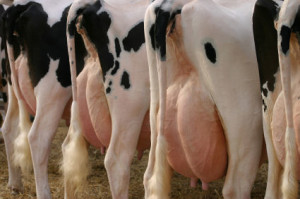
70 – 90% of milk comes from pregnant cows. Drinking milk exposes us to cows’ pregnancy hormones. One 3 year study of 9 – 15-year-old girls showed that girls drinking or eating 2 or more servings of dairy products daily had a 20% increase in acne. The same was found with teenage boys drinking skim milk and in adult women who drank milk during their teenage years.
Dairy foods are high in protein, particularly skim milk. (When the fat is removed the protein is concentrated.) Animal protein intake is the major factor that determines circulating insulin-like growth factor – 1 (IGF-1).
Removal of all dairy from the diet usually results in an almost miraculous end to acne. It can take up to two weeks for the body to clear dairy from the body however, so be patient.
Some pro-dairy organisations try to show that dairy does not cause acne. Watch this short video <click here> to see why cutting out dairy really can make all the difference.
The Oil Connection
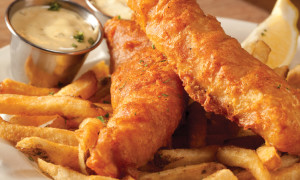
Excessive oil production by the skin is one of the causes of acne. To have clear skin, it is important to find a balance between Omega 3 and Omega 6 fatty acids. Vegetable oils increase omega-6 intake, which causes inflammation if not balanced by Omega 3s. High omega-6 intake is associated with the development of acne. The effect of these oils is exacerbated by high GL (glycemic load) foods such as baked goods. Higher Omega 3 fatty acids (found in fish oil, flax and chia seeds, and walnuts) is associated with reduced likelihood of acne because omega-3s counteract the inflammatory processes driving acne.
This means that eating fried foods like
- KFC or doughnuts,
- most fast foods, as well as
- salads doused in vegetable oils including olive oil (a little is fine)
is putting you at risk for acne. People with more extreme cases of acne often find that cutting ALL oils out of the diet, even in cooking, is needed to stop the acne inflammation process entirely.
Avoid High Glycemic Load Foods
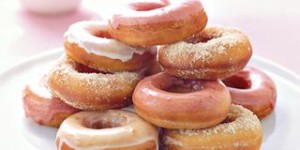
GL measures the effect of a certain food on blood glucose. High-GL foods, like refined carbohydrates, produce spikes in blood glucose leading to excessive insulin levels in the blood. These high insulin levels promote inflammation in the body, including diabetes, heart disease and some cancers – as well as acne.
And yes, there is a link between acne and breast cancer. That doesn’t mean that everyone who gets acne will get breast cancer; however, the same inflammation processes are seen in both.
Avoiding high-GL foods, such as sugar and white flour products, and substituting low-GL foods has been shown to improve acne symptoms.
A diet to prevent and reverse acne

An acne-protective diet is high in micronutrients, especially green and orange fruits and vegetables. These high nutrient foods eventually concentrate under the skin, giving the skin a healthy glow.
An anti-acne diet is low in baked goods like cakes and biscuits, soft drink, doughnuts and desserts. It also contains next to no dairy products and is low in fried foods.
In other words, to avoid acne, you need to eat as close to a dairy-free, low oil, low junk food vegetarian diet as you can possibly manage.
Acne is preventable and reversible and this diet goes a long way to bring this about.
Acne supplements
Some people have found that taking a zinc supplement or Vitamin A has helped reduce the number of acne lesions. Other find an omega 3 supplement is also beneficial (that is, fish oil, or DHA/EPA).
My preference is to encourage your teen to fill their plates with legumes, vegetables, whole grains and fruit, and develop not only beautiful skin, but a healthy body overall – and save your money for other things.
If your acne seems to be persistent despite trying this diet. please contact me for a consult.
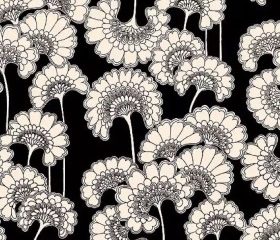

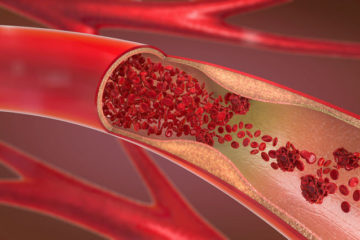
1 Comment
Kris · May 1, 2020 at 11:28 am
This is awesome Mary thanks so much for sharing!